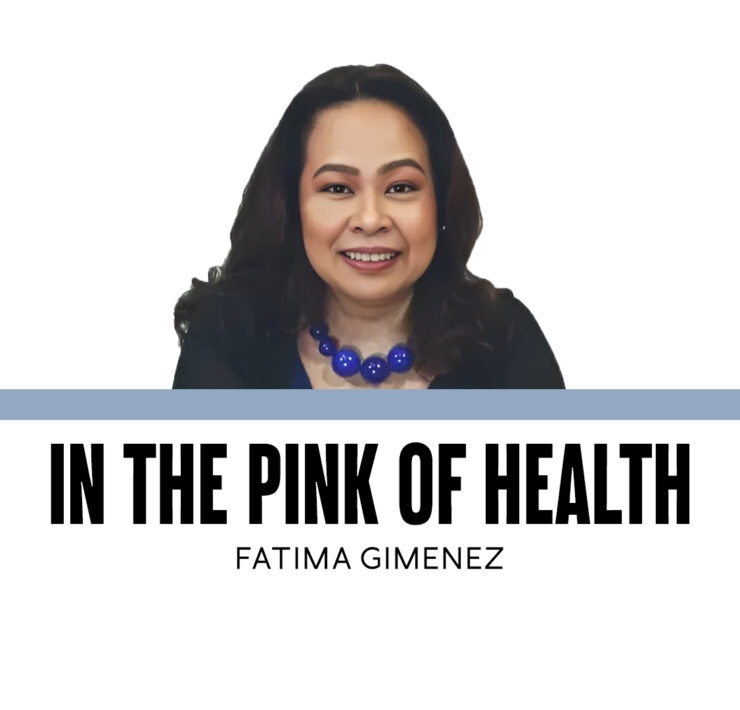Force of habit

How can we help ease the burden of problems concerning public health? One can imagine the enormity of the responsibility upon the shoulders of people tasked to deliver solutions. Witnessing how several areas have declared a state of calamity from the successive onslaught of typhoons—people crowding evacuation centers, wading through floodwaters, mindlessly swimming and diving through pools of murky water, waste, and plastic clogging the waterways—inevitably brings feelings of dread that soon there will be overcrowding of emergency rooms and a lack of hospital beds. In tandem are thoughts of countless others, whose symptoms might not be as severe but are experiencing the consequences of food, water, and vector-borne diseases and worse, choosing to self-medicate or stay at home because of logistical and financial challenges. As it has always been, health matters are often tackled from a curative rather than a preventive aspect. Despite this fact, in the face of calamities or natural disasters, it is still beneficial to be prepared.
How do we stay safe?
Avoid getting into a situation. Make it a habit to check weather conditions regularly. I hope that you appreciate the occasional alerts from the National Disaster Risk Reduction and Management Council. Did you know that these warnings are mandated to be given for free by telecommunication providers?
Limit your activities to those that are nonnegotiable. Remember that those who work with you or for you may not be as fortunate to have the means to report for duty. While the pandemic was a nightmare, one of the realizations was that it was possible to work remotely and still be productive. In some ways, it can be more cost-efficient, but admittedly may be stressful at times.
Ensure that you are up-to-date with your vaccinations. This is one area that needs to be repeatedly addressed and reminded of. Think of it as your protective gear before your eventual encounter with a virus or bacteria. Respiratory and diarrheal diseases are expected to increase during this period. We are amid the flu and the rainy seasons, and ideally, we should have been vaccinated before their onset. Flu can mimic other illnesses, such as dengue and COVID-19, and is particularly worrisome for individuals who are immunocompromised, pregnant, with comorbid conditions, are very young, or elderly. Furthermore, it can set the stage for a subsequent respiratory bacterial infection. In some cases, both can occur concomitantly. Pneumococcal vaccinations are routinely recommended for children, for adults at risk, and even for those 50 years old and above without risk factors. With regard to COVID-19, the current vaccines are no longer available in our country, and no protection is expected from those that we had received before, as the virus has mutated and evolved.
For diseases acquired through the fecal-oral route, vaccines are available for hepatitis A, cholera, and typhoid. These three diseases have been commonly encountered after natural disasters and extreme flooding, primarily through contamination of water and food sources and exacerbated by lack of access to clean drinking water and waste facilities. While vaccination against hepatitis A is routine, cholera and typhoid are usually recommended for travelers who visit highly endemic countries, have specific medical conditions, or are in situations, such as outbreaks, that place them at risk. Vaccination is a useful adjunct in the control of cholera epidemics.
Measles is a highly transmissible disease, and cases have been documented to have occurred in the past, post-typhoon. Anyone, regardless of age, who has never contracted the disease or never been vaccinated may be susceptible, especially in crowded areas, such as evacuation centers. While there has been improvement overall in childhood immunization rates, dislodging the Philippines from the top 10 countries with zero-dose children, we still haven’t reached the ideal number to achieve herd immunity, so its occurrence is not an impossibility.
Currently, there are no vaccines available for dengue, at least in our country, and for leptospirosis. For the latter, in the event of unavoidable exposure, there are prophylactic antibiotics that are available. However, prophylaxis is not 100 percent effective, and one should still watch out and monitor for signs and symptoms.
Maintain good personal hygiene. Wash your hands. Wear a mask and isolate if necessary. Practice safe food preparation techniques. Prevent contamination of food and drinking water.
Keep your surroundings clean.
While all these are simple enough to understand, acting upon these reminders requires conscious effort. There is always great value in every individual’s contribution. One mindless action or inaction can be potentially harmful to another human being. We can be vectors for infectious agents or parties in creating an environment that can be potentially toxic for others.
Stay safe, everyone!


















